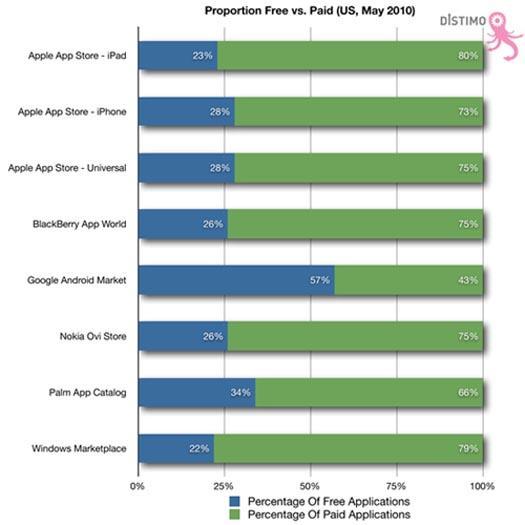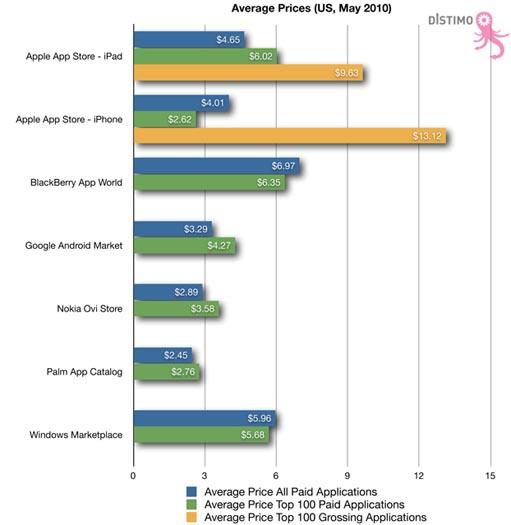
As this long holiday weekend in the U.S. begins reaching its end today, I've bet at least once over the past few days you've wondered to yourself, "I wonder what the pricing breakdown for each mobile platform's application store looks like." Good news, reader! Thanks to app store analytic firm Distimo, now we know. When it comes to the all-important free category, the Android Market has the lead by a country mile with a 57 percent share of free apps. Bringing up the rear is Palm's App Catalog at 34 percent, Apple's App Store at 28 percent, BlackBerry's App World and Nokia's Ovi Store tied at 26 percent, and Windows Mobile at 22 percent. The one thing to remember, though, is that while the Android Market is available in 46 countries, only 13 of those countries can download paid apps and only nine can even distribute apps in the Android Market. (There are some totals above 100 percent in the graph above because of price changes during the reporting period.)
On the paid app front, $2 is the magic number. Distimo found that in most stores, more than 50 percent of the apps are priced at or below $2. Focusing in on Apple's App Store, it was found that the $0.99 apps is considerably higher in the App Store for iPhone than in the App Store for iPad, which is kind of unsurprising. Finally, Distimo shares with us the average prices for paid apps on each platform. The highest was BlackBerry's App World, with an average price of $6.97, while Palm's App Catalog was the lowest at $2.45.
These numbers are definitely interesting as they offer a glimpse into each platforms application store and reveal a few quirks about them, as well. The thing I found strangest is that BlackBerry's App World still doesn't allow applications priced below $2.99. Not all BlackBerry owners are business users, and I'm sure app developers could see a healthy boost in sales if they were able to sell their products for the more impulse-buy price of $0.99. Google also needs to make some changes, as making more countries able to purchase paid apps would bring more revenue to devs. However, it might be overwhelming to some to see even more variations of currency in the Android Market, so maybe Google should work on a solution to that, too.

Via TechCrunch